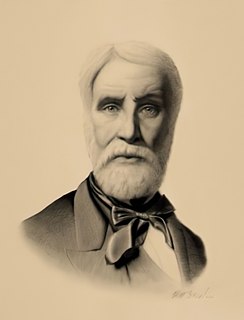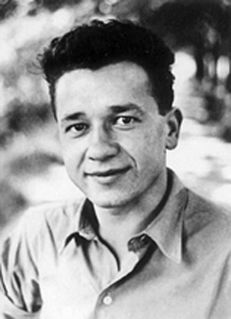A Quote by Woodrow Wilson
It recognizes no morality but a sham morality meant for deceit, no honor even among thieves and of a thievish sort, no force but physical force, no intellectual power but cunning, no disgrace but failure, no crime but stupidity.
Related Quotes
We're always projecting our moral categories on things. I think that's inevitable. But capitalism places no particular value on morality. Morality in the market is enforced by contract and regulation and law, because morality is understood to be in conflict with the motive force of greed and accumulation.
Many a man renounces morals, but with great difficulty the conception, 'morality.' Morality is the 'idea' of morals, their intellectual power, their power over the conscience; on the other hand, morals are too material to rule the mind, and do not fetter an 'intellectual' man, a so-called independent, a 'freethinker.'
So long as men desire to live together, no man may initiate the use of physical force against others. . . . When a man attempts to deal with me by force, I answer him by force. It is only as retaliation that force may be used and only against the man who starts its use. No, I do not share his evil or sink to his concept of morality: I merely grant him his choice, destruction, the only destruction he had the right to choose: his own.
Power invariably elects to go into the hands of the strong. That strength may be physical or of the heart or, if we do not fight shy of the word, of the spirit. Strength of the heart connotes soul-force. Let it be remembered that physical force is transitory, even as the body is transitory. But the power of spirit is permanent even as the spirit is everlasting.
The most important human endeavor is the striving for morality in our actions. Our inner balance and even our very existence depend on it. Only morality in our actions can give beauty and dignity to life. To make this a living force and bring it to clear consciousness is perhaps the foremost task of education. The foundation of morality should not be made dependent on myth nor tied to any authority lest doubt about the myth or about the legitimacy of the authority imperil the foundation of sound judgment and action.
War, even in the best state of an army, with all the alleviations of courtesy and honor, with all the correctives of morality and religion, is nevertheless so great an evil, that to engage in it without a clear necessity is a crime of the blackest dye. When the necessity is clear, it then becomes a crime to shrink from it.
Government force is derived from the sum of the physical force each citizen could exert which by one citizen himself would be ineffective, but when summed from the force of all the area's citizens indeed composes a power no citizen or group can withstand. That force is then rightly but justly to be used against those who violate the foundation pillars of freedom.
The world is ruled by neither justice nor morality; crime is not punished nor virtue rewarded, one is forgotten as quickly as the other. The world is ruled by power and power is obtained with money. To work is senseless, because money cannot be obtained through work, but through exploitation of others. And if we cannot exploit as much as we wish, at least let us work as little as we can. Moral duty? We believe neither in the morality of man nor in the morality of systems. [p. 168]
Zarathustra was the first to consider the fight of good and evil the very wheel in the machinery of things: the transposition of morality into the metaphysical realm, as a force, cause, and end in itself, is his work. [...] Zarathustra created this most calamitous error, morality; consequently, he must also be the first to recognize it.
The libertarian approach is a very symmetrical one: the non-aggression principle does not rule out force, but only the initiation of force. In other words, you are permitted to use force only in response to some else's use of force. If they do not use force you may not use force yourself. There is a symmetry here: force for force, but no force if no force was used.
Power operates only destructively, bent always on forcing every manifestation of life into the straitjacket of its laws. Its intellectual form of expression is dead dogma, its physical form brute force. And this unintelligence of its objectives sets its stamp on its supporters also and renders them stupid and brutal, even when they were originally endowed with the best of talents. One who is constantly striving to force everything into a mechanical order at last becomes a machine himself and loses all human feeling.


































